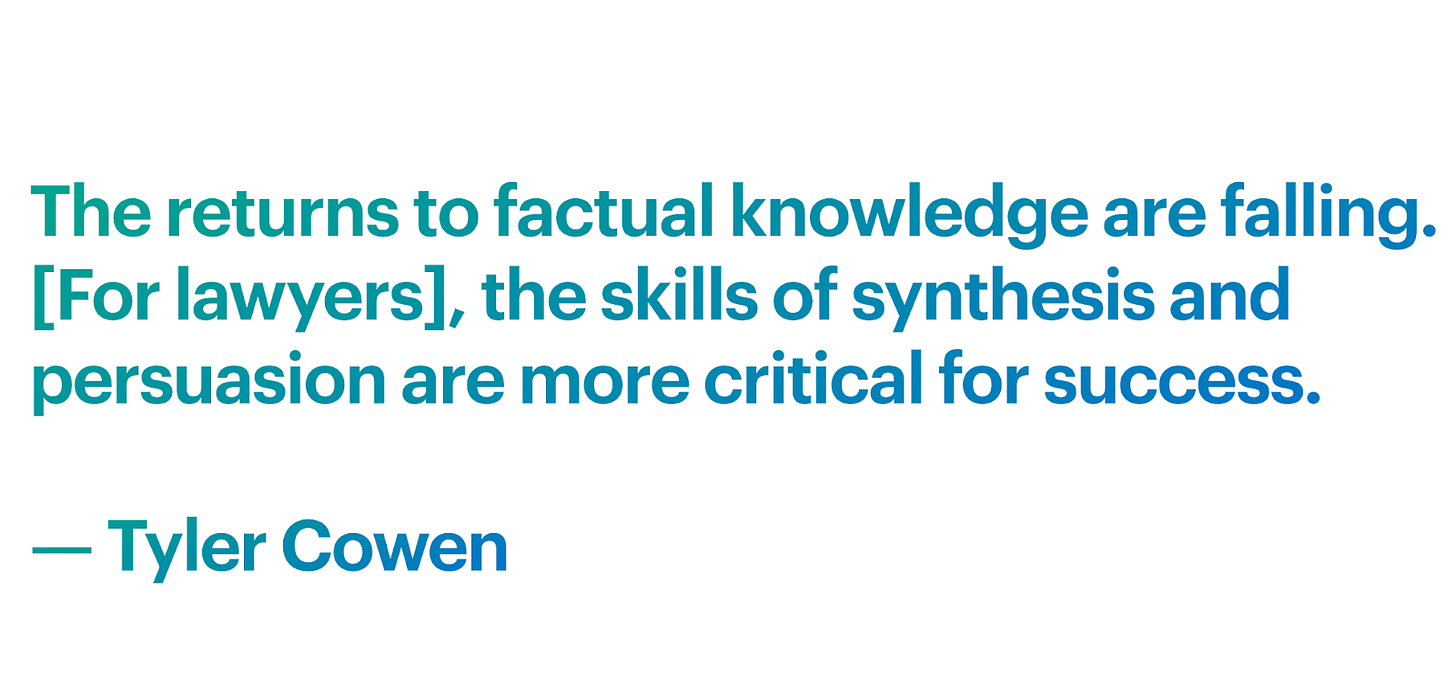The Suits Gap
What The History of Law Practice Can Tell Us About AI
Welcome to Money in Transit, a newsletter for merchants who suddenly find themselves considering payment applications their most strategical piece of technology.
Last Saturday, I was asked to deliver a talk at PyDay Barcelona on the topic of AI. This is a topic that I pay close to no attention in this newsletter. I’m sure that after reading today’s post, you’ll understand why.
Consider sharing this piece to that friend who can’t stop talking about AI destroying our jobs.
What percentage of all software engineers globally do you think have less than 5 years of experience? Uncle Bob, fond of making his anecdotal experience universal law, claims that nowadays the population of software engineers doubles every five years.
That bold statement resonates with a lot of people. Driven by the prestige of the industry, the shortage of experienced developers, and of course the money, computer science and it’s applications—software engineering, data science, DevOps engineers, etc—has attracted and continues to attract a lot of people.
You’ll probably agree that this chart is a fair representation of what the industry looks like, if we were to put some numbers into it. A few studying, many, MANY people in the low range, and as we move towards the right, a gentle slope towards those few of best judgement and highest ability.
This chart, though, is not about engineers. It’s about lawyers: few paralegals, lots of associates, few partners.
And here’s the kicker: the chart does not reflect present time’s lawyers. It’s from 1996. Here’s how it looked like only 4 years later:
Even if the median stayed pretty much where it used to be, the distribution is totally changed—the slope is still there, but it’s not gentle, and there’s a new peak on the right side.
This is the same chart, but ten years later:
There are now two distinctive peaks, and the middle area between the two has hollowed out. Let us call that area The Suits Gap.
Do you remember that TV series, Suits? Harvey, a badass partner at a Harvard-graduates-only law firm, hires Mike, a university expellee with photographic memory, as his new associate, and both spend the time solving cases and quoting Casablanca.
In the real world, elite lawyers at the end of the twentieth century were valuable to the degree that they had an encyclopedic knowledge of all the relevant case law. Hard won, hard to delegate. In that era, experience trickled down, because even the most productive partners couldn’t scale to hundreds of clients.
But here comes the Internet, and now elite lawyers command large teams of lower-tier associates and cheap paralegals who are good at Google-fu and writing drafts. With Mike in the scene, Harvey can scale.
Think of it this way: Isn’t Mike Ross The Internet? A new kid on the block, uncredentialed, who knows about everything and never forgets? Harvey uses him for everything, ignoring every other associate in the firm, while at the same time pretends that nothing’s changed.
Lawyers at the bottom have been hit hard by the Internet. Suits is the great reckoning of the law industry.
Where am I going with all this? Obviously, AI, and the fact that our industry seems to be going down the road paved by lawyers.
The problem, though, is that you still believe that the key to being successful is to learn more and more about the technical aspects of your jobs. It could be learning more programming languages, or mathematics, or going “full-stack” and learn everything!
You wish you were Mike Ross, because he knows everything and forgets nothing.
Thing is, Mike’s job interview with Harvey has aged very badly. If you recall, Harvey starts reading the BARBRI legal handbook and at some point Mike finishes the sentence verbatim.
But in 2023, that’s not impressive anymore. Mike wouldn’t have gotten the job today. He, and every engineer trying to Keep Up With The Shiny Tech, are missing the point. Coding, like parroting legal handbooks verbatim, is the least valuable thing an engineer can offer.
This throws a lot of people off, because they’ve developed a sense of mastery over software development. But as Tyler Cowen crucially pointed out, the skills of synthesis and persuasion are much more valuable than factual knowledge.
Like Harvey, you’re paid to win. To consistently turn uncertain, high stakes situations into predictable and beneficial conclusions.
In an undifferentiated sea of petty tech debates and tutorial hamster wheels, engineers with an eye for business, who can put their thinking forward, will cross the Suits Gap, and become AI proof.









